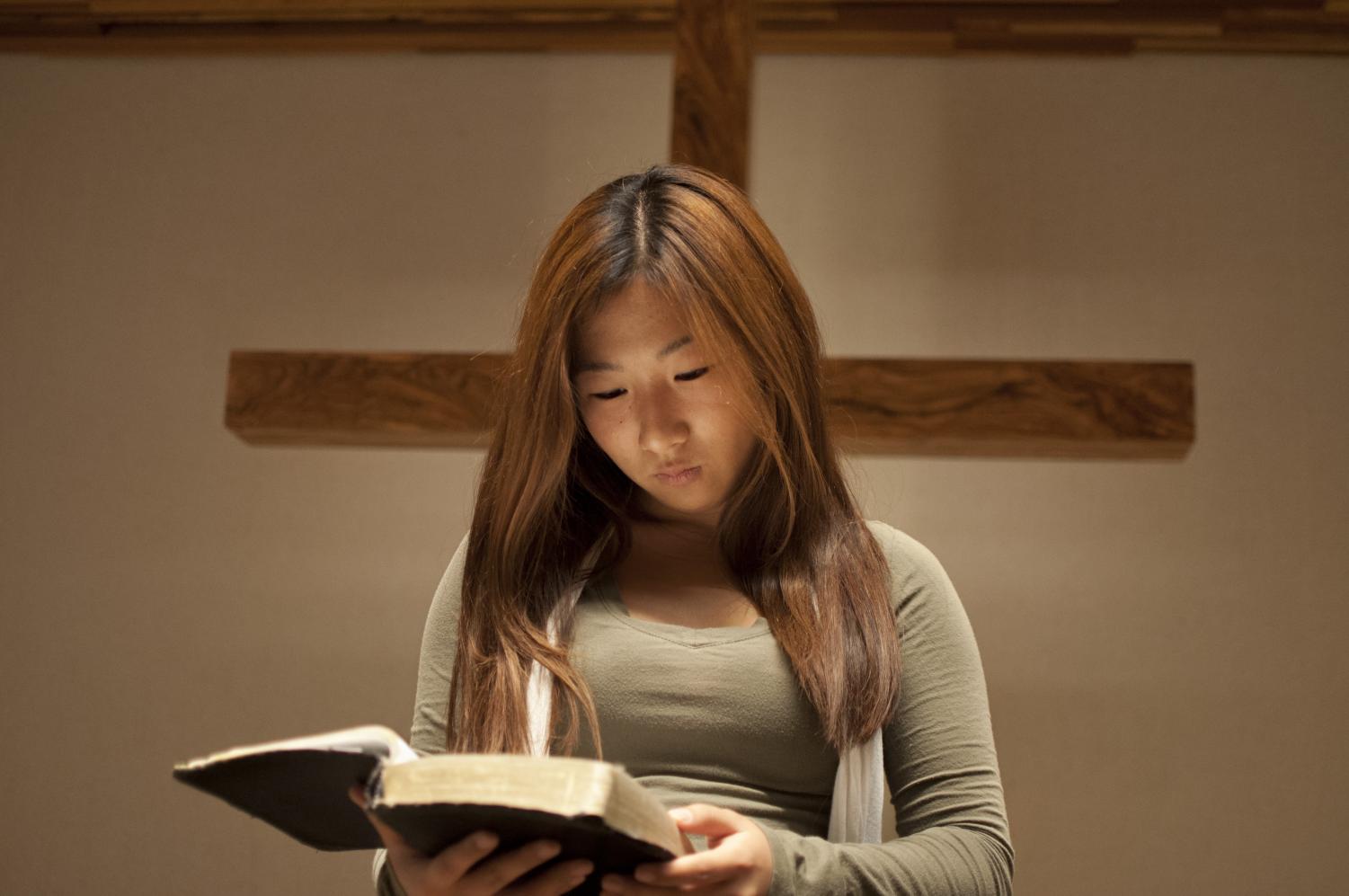Written by James O’Hearn
In the parts of the world privileged enough to thoughtfully discuss society, again and again we keep coming back to the questions of equality and gender. Any and all can agree that men and women are different, biologically if nothing else. Does this mean that there are roles in society that one side can never have? Most cultures have certainly thought so for hundreds of years. But then again, most cultures have also oppressed women, often to a stomach-turning extent, for an equal span of time.In the parts of the world privileged enough to thoughtfully discuss society, again and again we keep coming back to the questions of equality and gender. Any and all can agree that men and women are different, biologically if nothing else. Does this mean that there are roles in society that one side can never have? Most cultures have certainly thought so for hundreds of years. But then again, most cultures have also oppressed women, often to a stomach-turning extent, for an equal span of time.
“Correlation doesn’t equal causation!” cries one side. “Defined gender roles don’t always lead to oppression!”
“They do so!” cries the other. “Occam’s Razor: The most likely explanation is most likely the explanation!”
It’s certain that gender stereotypes have been through truly ridiculous changes throughout history. Pink is for girls! Since when? An editorial from the trade publication Earnshaw’s Infants Department in 1918 says (in the uniquely earnest way of old-timey journals),
“There has been a great diversity of opinion on the subject, but the generally accepted rule is pink for the boy and blue for the girl. The reason is that pink being a more decided and stronger color is more suitable for the boy; while blue, which is more delicate and dainty, is prettier for the girl.”
This only lasted, of course, until the 1940s or so, when the colors’ assigned genders were reversed once more. Some arbitrary cultural roles in place hurt both male and female — for example, the insistence that men are lust-crazed pigs with no self-control, lacking the emotional depth supposedly enjoyed only by women, is frankly insulting to both genders. It limits those who find enjoyment in playing parts unexpected of them, such as a woman who thrives in hard-contact physical sport or a man easily swept away in the beauty of music.
As Christians in this modern-day limbo of rules and roles, what should we believe? ere is no consensus, but there are scales of differing opinion. Toward one side of the line lies complementarianism: the view that complementary roles exist for men and women in religious life, family leadership and marriage. e contrasting view is egalitarianism, which states that women and men should have the opportunity to share equal authority and responsibilities in religion, family and marriage. Somewhere o in the distance is the viewpoint that men and women have intrinsically differing value, but to give this belief any more than the merest acknowledgement of existence gives it more than it is worth.
Professors of both views can be found at Biola, so it seems wise to see what proponents of each have to say. Jason Oakes, associate professor of Christian thought at Talbot School of Theology, took a moment or two before speaking.
“Egalitarians will say that there are no gender roles in the Bible,” says Oakes. “An egalitarian will say that a woman should be able to do everything that a man should do, and the two ways that immediately spring to mind are in church and family.”
He went on to describe the overall complementarian view: e Bible states clearly that only men should fulfill the role of elder/preacher and head of the family. Contrary to popular opinion, he added, this doesn’t mean a familial dictatorship in the home.
“Now, you think of a complementarian household, you think of it being ruled with an iron fist — and there probably are examples of that, of ways that are not God-honoring. But in how it’s actually lived out, it may not look like what you think it is.” The point was made clear: If a marriage is unhappy, it’s unlikely to be because of who holds leadership. A person abusing power (or causing endless arguments and deadlocks) has larger issues than whether to call themselves “complementarian” or “egalitarian.”
For there to be differing beliefs, the other side must have something to say. Ron Pierce, professor of biblical and theological studies at Talbot, often teaches Theology of Gender, and was helpful in providing the egalitarian viewpoint.
“Complementarian — well, the word itself means ‘differences’, we complement each other — but it becomes sort of code language within the debate for male leadership,” says Pierce. Not just different roles, says Pierce, but a hierarchy of roles. He warns of a possible misunderstanding, as “egalitarian” in a literal sense could be taken to mean there are no differences at all. True egalitarianism in the classical sense of societies, he says, simply means there’s equal opportunity.
When asked why he leans toward this side, Pierce said he thought it the best, most consistent argument based on Scripture, though there’s text moving in both directions.
“In the new covenant Paul declares that now we are in Christ there is no longer male nor female. e real debate that follows is in Genesis and Galatians … how does Paul apply that to the churches?”
None of this, however, addresses an even more controversial problem — how gender roles are applied in non-Christian communities. Like it or not, there’s quite the variety of people in the world, and the expectations built by society cause problems for those who don’t identify as straight and cisgendered. In an interview, a Biola student Lisa* spoke of how gender roles bring baggage for her, as a lesbian.
“In relationships of every kind, there’s always got to be someone wearing the pants, you know? That’s why there’s the ‘degrees of masculinity’ I guess you’d call them in lesbian relationships, ranging from butch to femme,” she says. “Why does someone have to be wearing the pants? Because it’s been expected for so long that someone will be, and that it’ll always be the guy.”
Is the problem inherent in gender roles themselves? Apparently not — only in those expected to inhabit them.
“For me personally, even though gender role is a social construct, I don’t think it’s necessarily bad,” she says. “When I want to be with someone, I want to protect them, watch out for them, open doors for them and pull out their chair for them. I want to take that role, because I don’t think the role is what’s bad so much as supposing that a certain type of person’s always got to hold it.”
There is, naturally, only one proper title for the role: “I would call myself a gentleman, even though I’m not a man.”
It’s hard to argue that the roles traditionally carried by men are naturally bad, for one might as well say that aspirations to become a politician are wrong because it’s been traditionally male as well. Still, it is undeniable that the Bible, and its seeming injunction against women in power, has been used as one of many justifications of putting women down unfairly.
For millennia human societies have denied women basic human rights and freedoms that all should have, from education to the ability to walk down a street feeling safe.
There has, however, been a faint shift in recent times. Women serve in the military. Men (horror of horrors) openly enjoy musical theatre. Men stay at home as “house- husbands” while their wives bring home the bacon. Women hold political offices across the country.
Yet some might ask whether allowing for equal opportunity in everything necessarily a good thing. Having a designated leader is good in many situations, after all. To change this would accord all manner of chaos. Suggesting that the traditional reading of Scripture’s views may be incorrect is a bit much, isn’t it?
e verses held up as Scriptural proofs for one side and the other (1 Timothy 2:12 for complementarianism, Galatians 3:28 for egalitarianism) have, perhaps, something in common with another pair of verses that are seemingly contradictory. Romans 3:20 makes it clear that works cannot save a man while James 2:24 says that faith without works is dead. Neither of these verses is wrong, but they both afford opportunity for wrong beliefs that lean too far in one direction or another.
We as Christians say that the Bible is living and active. Not in the sense that its meaning changes over the years, claiming some kind of subjective, transitional truth. Rather, our understanding of it grows, letting us realize that it speaks to more than the traditional Christian life. Does the Bible ever explicitly mention gender roles? No, but there’s no explicit directive on performing charity for non-Christians, either. It appears that there’s one or two gender roles that a strict reading of the Bible supports — but overall, plenty more that it seems we could all do without.
We’ll start with baby steps. Men are henceforth allowed to cry, show emotion and still be masculine, as it was in ancient times. Women are allowed to be strong.




